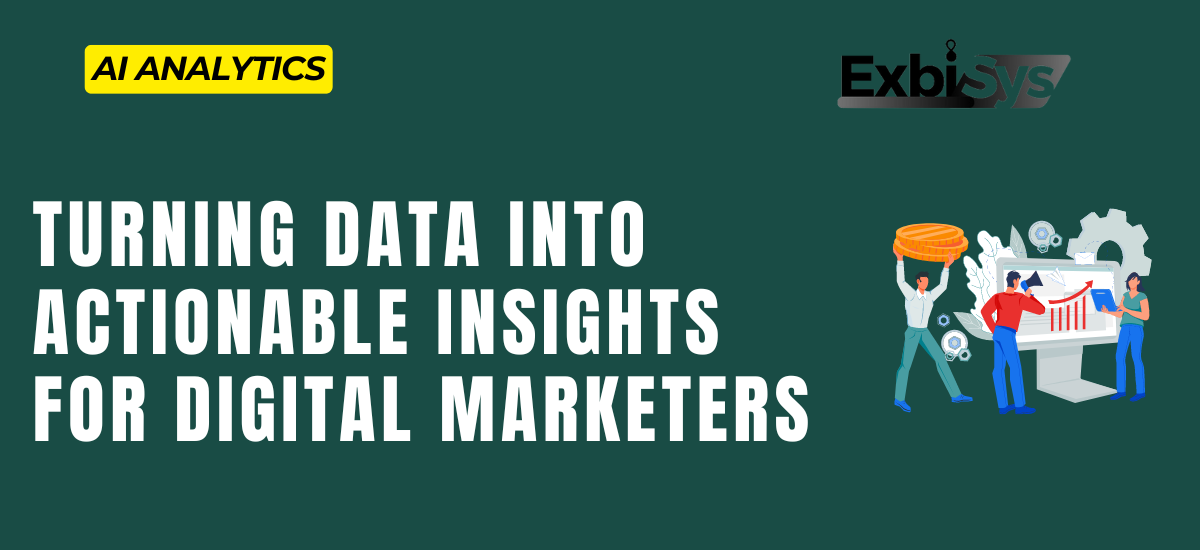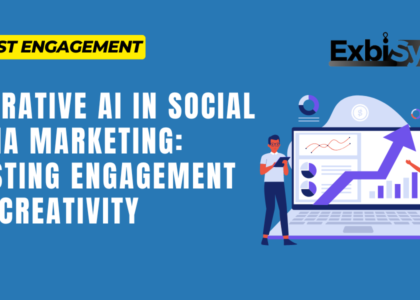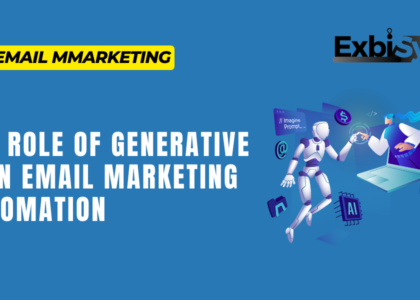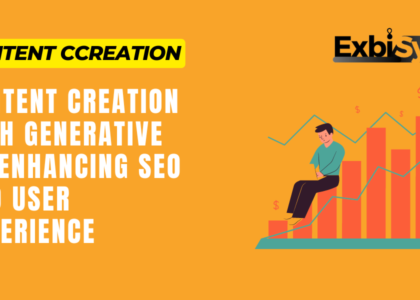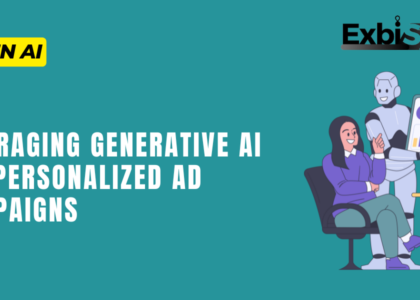In today’s data-driven world, digital marketers are inundated with vast amounts of information. From customer behavior and website traffic to social media engagement and email campaigns, the sheer volume of data available can be overwhelming. However, having access to data is only half the battle; the real challenge lies in making sense of it and turning it into actionable insights. This is where AI analytics comes into play. At Exbisys, we understand the transformative power of AI in digital marketing, and in this blog, we’ll explore how AI analytics can help marketers turn data into actionable insights that drive better results.
1. The Role of AI in Modern Analytics
Artificial Intelligence (AI) is revolutionizing the way businesses approach data analysis. Traditional analytics methods often require manual processing and interpretation, which can be time-consuming and prone to error. AI, on the other hand, can analyze vast datasets in real time, identifying patterns, trends, and correlations that may not be immediately apparent to human analysts.
AI-driven analytics tools can process data from multiple sources, including websites, social media, email campaigns, and customer databases, to provide a holistic view of your marketing efforts. By automating data analysis, AI frees up valuable time for marketers, allowing them to focus on strategic decision-making rather than getting bogged down in the minutiae of data processing.
2. Gaining Deep Customer Insights
One of the most significant benefits of AI analytics is its ability to provide deep insights into customer behavior. By analyzing data from various touchpoints, AI can create detailed customer profiles that include preferences, buying habits, and engagement patterns. This level of insight allows marketers to segment their audience more effectively and tailor their campaigns to meet the specific needs of each segment.
For example, AI can identify which products or services are most popular among certain demographics, allowing you to create targeted marketing campaigns that resonate with those audiences. Additionally, AI can predict future customer behavior based on past interactions, enabling you to anticipate customer needs and deliver personalized experiences that drive loyalty and retention.
3. Optimizing Campaign Performance
AI analytics doesn’t just provide insights; it also enables marketers to take immediate action to optimize their campaigns. By continuously monitoring campaign performance in real time, AI can identify which elements are working and which are not. This allows marketers to make data-driven adjustments on the fly, ensuring that their campaigns remain effective and cost-efficient.
For instance, if an AI tool detects that a particular ad is underperforming, it can automatically suggest changes to the ad copy, targeting, or budget allocation to improve its performance. This level of automation and precision ensures that your marketing efforts are always aligned with your goals, maximizing ROI and minimizing wasted spend.
4. Predictive Analytics for Better Decision-Making
One of the most powerful applications of AI in digital marketing is predictive analytics. By analyzing historical data and identifying patterns, AI can predict future trends and outcomes, helping marketers make more informed decisions. Whether it’s forecasting customer demand, predicting the success of a new product launch, or anticipating changes in market conditions, AI-powered predictive analytics provides a competitive edge.
For example, AI can predict which customers are most likely to churn, allowing you to implement retention strategies before it’s too late. Similarly, AI can forecast the success of different marketing channels, enabling you to allocate your budget more effectively and focus on the strategies that are most likely to deliver results.
5. Enhancing Personalization
Personalization is key to delivering a superior customer experience, and AI analytics is making it easier than ever to achieve. By analyzing customer data in real time, AI can deliver personalized content, offers, and recommendations that are tailored to each individual user. This level of personalization not only enhances the customer experience but also increases engagement and conversion rates.
For instance, AI can analyze a customer’s browsing history and purchase behavior to recommend products that are most relevant to their interests. Additionally, AI can personalize email marketing campaigns by automatically segmenting your audience and delivering targeted messages that resonate with each segment. This personalized approach ensures that your marketing efforts are more effective and that customers feel valued and understood.
6. Automating Data-Driven Marketing
AI analytics is also transforming the way marketers execute their campaigns by automating data-driven marketing processes. From content creation and email marketing to social media management and ad targeting, AI can automate a wide range of tasks, allowing marketers to scale their efforts without sacrificing quality or effectiveness.
For example, AI-powered tools can automatically generate content based on data insights, ensuring that your messaging is always relevant and timely. AI can also automate the segmentation and targeting of your audience, delivering personalized ads to the right people at the right time. This level of automation not only saves time but also ensures that your marketing efforts are always data-driven and optimized for success.
7. Improving ROI with AI-Driven Insights
One of the ultimate goals of any marketing campaign is to maximize return on investment (ROI), and AI analytics is a powerful tool for achieving this. By providing deep insights into customer behavior, campaign performance, and market trends, AI enables marketers to make more informed decisions that lead to better results.
For example, AI can analyze which marketing channels are delivering the highest ROI and suggest ways to optimize your budget allocation. Similarly, AI can identify opportunities for upselling or cross-selling based on customer data, helping you increase revenue and profitability. By leveraging AI-driven insights, you can ensure that your marketing efforts are always aligned with your business goals and that you’re getting the most out of your investment.
8. Staying Ahead of the Competition
In today’s competitive digital landscape, staying ahead of the competition requires more than just traditional marketing strategies. AI analytics provides a significant advantage by enabling marketers to quickly adapt to changing market conditions and customer needs. By continuously monitoring and analyzing data, AI allows you to stay one step ahead of your competitors, ensuring that your marketing efforts are always relevant and effective.
For instance, AI can analyze competitor data to identify gaps in the market that your business can capitalize on. Additionally, AI can predict emerging trends and consumer preferences, allowing you to adjust your strategy before your competitors even realize what’s happening. This proactive approach ensures that your business remains at the forefront of the industry and that you’re always ready to meet the needs of your customers.
Conclusion
AI analytics is transforming the way digital marketers approach data, turning vast amounts of information into actionable insights that drive better results. By leveraging AI, businesses can gain deep customer insights, optimize campaign performance, and make more informed decisions that lead to higher ROI. At Exbisys, we specialize in helping businesses harness the power of AI analytics to enhance their marketing efforts and achieve their goals. Contact us today to learn more about how AI analytics can help you turn data into actionable insights and stay ahead in the competitive world of digital marketing.

